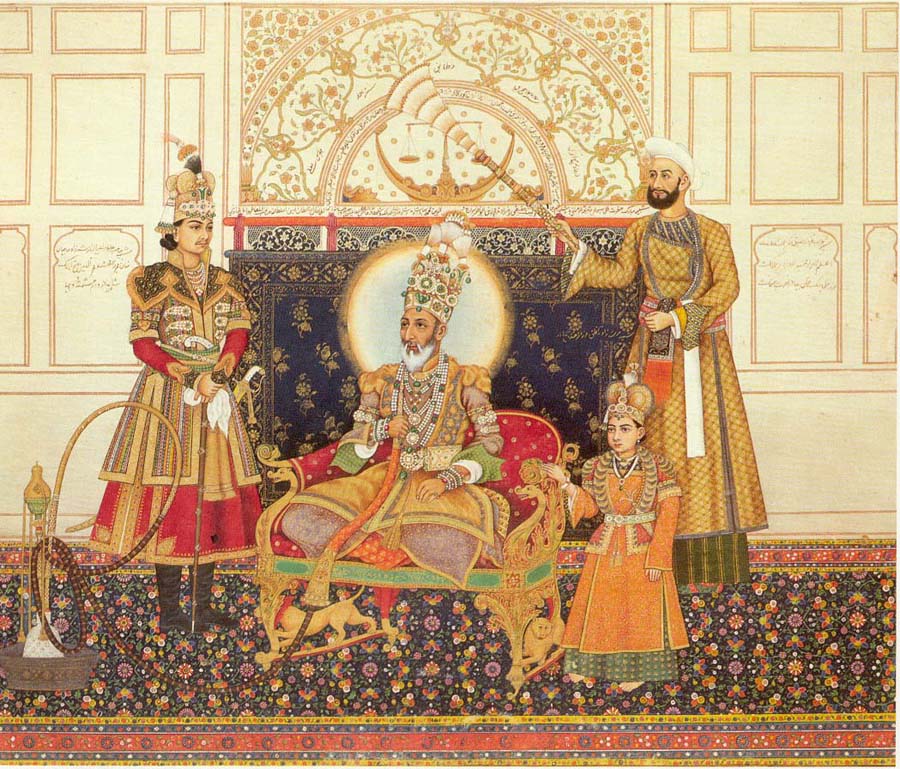FWP:
SETS == TRANSLATABLES
COMMERCE: {3,3}
INDEPENDENCE: {9,1}
Some manuscripts, and some modern editions (including Hamid's), have kih instead of jo in the second line. As always, I follow Arshi. See his discussion in his introduction, p. 123.
Ghalib is here reminded-- by someone else admonishing him, or by his own inner voice-- of his duties as a pension-receiver: he should give thanks and blessings to the King for the financial support he's receiving. If read in the right tone, this is surely one of the bitterest verses he ever composed.
When writing in 1866 to his last major patron, Navab Kalb-e Ali Khan of Rampur, Ghalib proudly copied out in his letter all the verses of the present ghazal (see {110,1})-- except this one. The other verses were all present and all in order, so it's almost certain that was using a written text rather than working casually from memory. (People almost never memorized whole ghazals in exact order, and when writing from memory Ghalib very often recorded his own verses in different sequences from those of the divan, and was also likely to omit a few.) In a systematic presentation of the ghazal like the one he sent to the Navab, his omission of this striking closing-verse is very unlikely to have been accidental. It's not hard to think of reasons he might have had for leaving it out.
In fact Ghalib lived his whole life on a patchwork of small pensions from the British and from various Indian princes and nobles, supplemented by occasional gifts and by all-too-frequent loans. But he seemed to find his service in the Red Fort particularly galling, perhaps because it was clear that in Bahadur Shah's opinion his poetry was decidedly inferior to Zauq's. For a more general reflection on the relationship between poet and patron-- or beggar and giver-- see {167,10}.
Note for grammar fans: Here's one more case in which we're one step further in the past in Urdu than we would be in English. Because of the present-tense verb [ho] in the first line, in normal English the second line would begin 'those days have gone', and this is how I've translated it. The literal Urdu would of course be 'those days went'. For more on this, see {38,1}.
For another, even bleaker occurrence of naukar nahii;N huu;N mai;N , see {130x,2}.

Nazm:
Look-- this too is one aspect of the expression of gratitude. (116)
== Nazm page 116